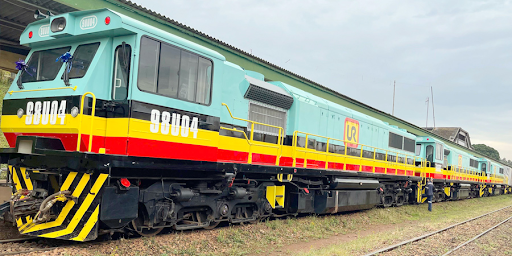The African Development Bank Group (AfDB) has approved $301m for the refurbishment of the Kampala-Malaba Meter Gauge Railway (MGR ) in Uganda. The revamp is aimed at improving regional trade and reducing transportation costs.
The fund cumulatively includes loans and grants from AfDB, alongside its concessional lending window, the African Development Fund.
The rehabilitation project covers the 265km of MGR tracks between Malaba and Mukono, which includes the line to Jinja Pier and Port Bell on Lake Victoria.
The project has the support of Uganda’s cabinet and parliament and aims to improve the railway’s climate resilience by utilising nature-based solutions such as tree planting. Under the project, railway staff will receive requisite training and skills development.
No fewer than 1.2 million people are expected to benefit from this refurbishment project, 40% of whom AfDB said are women.
Read also: AfDB Group Approves $50 Million Trade Finance (RPA) with Natixis
This is in accordance with Uganda’s Vision 2040 National strategy and the East African Community’s Vision 2050 plan to bring transformation to East Africa and make it a ‘globally competitive upper-middle-income region’.
The MGR track constitutes a part of the East African Community’s Northern Corridor that links Uganda’s capital, Kampala, to the coastal city of Mombasa in Kenya.
Over 90% of the traffic along this route is moved by road, with just 7% being transported by rail as a result of the weak infrastructure, thereby causing high transportation costs.

According to the AfDB president, Akinwumi Adesina, “Railway lines are critical to opening up the heartland of Africa, where there is immense agricultural and economic potential.”
Adesina added that the tracks are vital in connecting rural-based Special Agricultural Processing Zones to other key logistics hubs.
AfDB’s Contributions to Africa’s Development
African Development Bank has over the years approved funds meant for technological and infrastructural advancement in Africa across different sectors.
In December 2021, The Board of Directors of the African Development Bank approved a $170 million loan to finance a digital and creative enterprises program in Nigeria through the Federal Government’s ‘investment in the Digital and Creative Enterprises (i-DICE) program.
The initiative was projected to spur investments in 226 technology and creative start-ups and provide non-financial services to 451 digital technology and small and medium enterprises.
In September 20202, African Development Bank (AfDB) invested the sum of $20 Million Into an Off-Grid Recovery Platform following the aftermath of the Corona Virus outbreak. The fund was used for the Clean Revolution Project (CRP), which is a blended finance initiative that aims to unlock private capital for energy-access companies. This was done to mitigate the pandemic’s adverse effects while advancing access to clean electricity and ensuring a green economic recovery.
More recently, AfDB had in November this year approved a €166.36 million loan to Senegal for the construction of the Dakar-Tivaouane-Saint Louis highway, which will improve access to the north of the nation.
Marie-Laure Akin-Olugbade, AfDB acting Vice President for Regional Development and Business Delivery, explained that “The Dakar-Tivaouane-Saint Louis Highway Construction Project will open up access to the northern regions, considered to be the bread basket of Senegal in terms of rice cultivation, as well as an area with high mining potential.”
This month, the African Development Bank’s Sustainable Energy Fund for Africa approved a $1 million reimbursable grant to develop two bioenergy plants in Ghana and Sierra Leone. The plants are projected to individually produce 5 megawatts of electricity and 11 megawatts of heat.
These supports from the African Development Bank are gradually and significantly advancing Africa’s economy.
